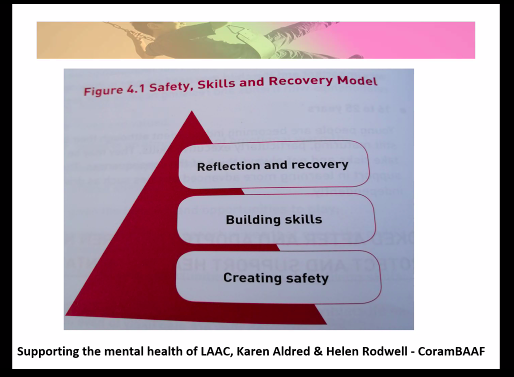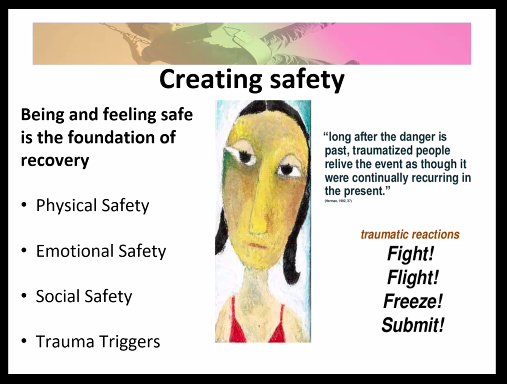The afternoon sessions of today's PSC SEND and Mental Health Conference now take 2 different streams. I'm going to try to tweet Zobia Kalim's session on 'Supporting the mental health of children and young people with early life trauma'
#PSCMHconf
#PSCMHconf
Zobia now discussing ACEs. More info here https://www.cdc.gov/violenceprevention/aces/about.html
In addition to the 10 ACEs identified by the above study, there are many more that have been recognised by subsequent research: pre-birth adversity, poverty, social disadvantage, racism, bullying are just some examples
#PSCMHconf
#PSCMHconf
ACEs are common. Almost half of adults in the UK have experienced at least one form of adversity described in the ACE study.
#PSCMHconf
#PSCMHconf
Zobia now referencing 'relational trauma' as described by Van De Kolk
More here: https://www.besselvanderkolk.com/
#PSCMHconf
More here: https://www.besselvanderkolk.com/
#PSCMHconf
Around 78,000 CYP in the UK are defined as 'looked after'. Many more are care-experienced or living with kinship carers.
#PSCMHconf
#PSCMHconf
More than half of the CYP in the care system have chronic mental health conditions compared to around 10% of the general child population.
This is likely to be an under-representation because it only takes into account those CYP who are identified as 'looked after'
#PSCMHconf
This is likely to be an under-representation because it only takes into account those CYP who are identified as 'looked after'
#PSCMHconf
Why is this the case? Zobia now introducing us to the ways in which trauma impacts on the physiology of the developing brain
#PSCMHconf
#PSCMHconf
Zobia now introducing attachment theory and internal working models to help us understand how early life experiences impact on a child's mental health
#PSCMHconf
#PSCMHconf
Parents and practitioners discussing how the pupil premium can be used in creative ways to support the wellbeing of looked-after and adopted children and young people
#PSCMHconf
#PSCMHconf
Zobia highlighting important links between the physiological changes, particularly in thyroid function, and eating disorders in trauma-experienced children.
#PSCHMHconf
#PSCHMHconf
On a more hopeful note, it's important to remember that with a supportive nurturing environment, the impact of trauma can be minimised. Our brains are highly plastic, especially in childhood.
#PSCMHconf
#PSCMHconf
Safety is an essential foundation for recovery from trauma, and safety has a number of different dimensions. Safety has to be something the child can *feel*
#PSCMHconf
#PSCMHconf
Zobia now describing how some trauma-experienced CYP had lower levels of stress during the school closures of the first Covid lockdown. We need to recognise how the school environment can lead to hypervigilance for some children.
#PSCMHconf
#PSCMHconf
These need to developed and introduced with empathy and the focus on relationship repair.
#PSCMHconf
#PSCMHconf
Zobia now discussing building emotional and psychological skills though:
 Support with everyday tasks
Support with everyday tasks
 Play
Play
 Taking and listening
Taking and listening
 Responding to stress
Responding to stress
 Managing worries
Managing worries
 Body scanning/mapping
Body scanning/mapping
 Cognitive skills
Cognitive skills
 Calming techniques
Calming techniques
#PSCMHconf
 Support with everyday tasks
Support with everyday tasks Play
Play Taking and listening
Taking and listening Responding to stress
Responding to stress Managing worries
Managing worries Body scanning/mapping
Body scanning/mapping Cognitive skills
Cognitive skills Calming techniques
Calming techniques#PSCMHconf
It's important that trauma-experienced CYP are able to understand their own life story. This helps them to know who they are and build their own unique identity. This, in turn, will make a significant contribution to their self-esteem
#PSCMHconf
#PSCMHconf
I need to wrap up now. Thank you Zobia for an excellent talk.

 Read on Twitter
Read on Twitter



